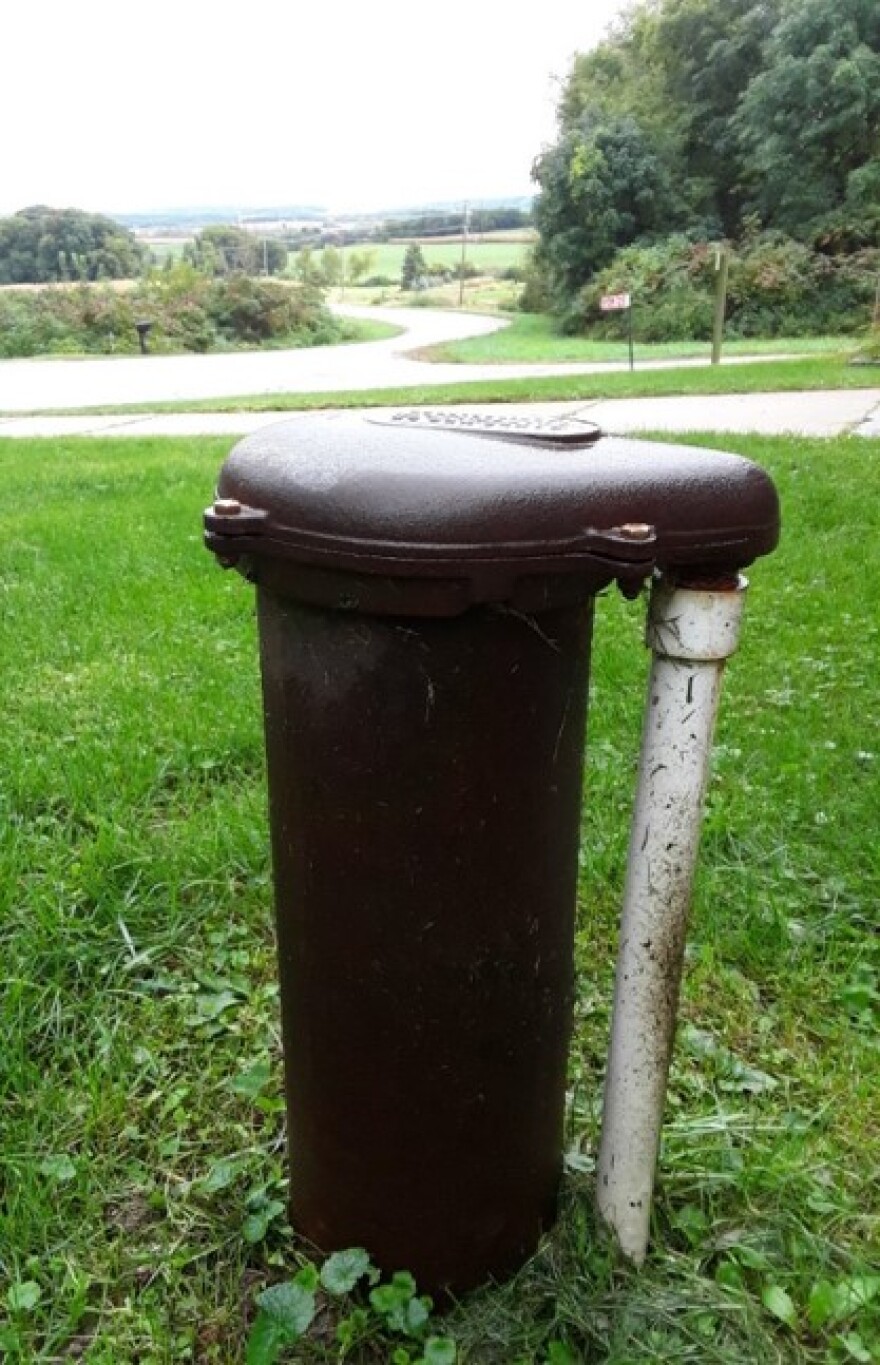An estimated 900,000 Wisconsin households rely on private wells for drinking water. It seems with every passing day, we learn wells are being impacted by contaminants — from manure to PFAS — putting families’ health at risk. Some people feel there's not enough support when they have to deal with a contaminated well.
READ: PFAS Concern Remains High In Marinette
Private well owners John Ridley and his wife Terri have lived in their Mequon house for decades. They raised their kids there.
While they haven't dealt with bacteria or nitrates in their water, Ridley says running his own water utility comes with occasional challenges. "One time our water was episodic because the water table in the aquifer had dropped and the pump was no longer fully submerged, and sometimes the pump goes out," he shares.

Although he knows it would be a good idea to follow the Wisconsin Department of Natural Resources recommendation to have their well tested once a year, Ridley says it’s only been tested when a technical problem popped up.
"The well company, after its repair, sends a sample into the state and have it checked. It’s always come back fine," he says.
But Liesa Lehmann with the Wisconsin DNR’s drinking and groundwater program says all private well owners aren’t as lucky. "Wisconsin has a wide variety of landscapes and land uses and wide variety of geology under the ground and that means every part of the state is a little bit different in terms of the risks to groundwater and drinking water," she says.
This brings us to the question that prompted this Beats Me segment. Question asker Jeanie Carlin lives in rural, northeast Wisconsin, and had her private well tested because she’s worried manure spread on fields close to her house could be impacting her water. If her water is contaminated, she wants to know if there's financial support available to fix it.
READ: Kewaunee County Residents Fed Up Living With Contaminated Wells
The short answer is: The well owner pays. But, the DNR's Liesa Lehmann says there is a fund designed to help if well owners meet the criteria. "The well compensation grant program allows people who are income-eligible to obtain 75% cost share for the cost of either replacing or repairing, or in some cases treating, a contaminated well," she says.
Each year, the DNR is allotted $200,000 for this grant program.
That seems like a drop in the bucket considering the findings of a 2013 study. It tested private wells of low-income families in Wisconsin. Nearly 50% of those sampled tested high for at least one contaminant.

As for the grant, if nitrates are present, everything gets more complicated — in order to qualify, you have to own livestock. So, if you don't have livestock drinking your water, you are out of luck.
Democratic state Rep. Katrina Shankland of Stevens Point helped lead a bipartisan effort to put more money into the program and make it less restrictive. It’s one of the bills moving through the state legislature that came out of the Speakers Task Force on Water Quality that Shankland co-chaired.
READ: Bipartisan Task Force Recommends Legislation To Improve Water Quality In Wisconsin
"It could take up to $440 million to remediate every nitrate-contaminated well in Wisconsin." - Rep. Katrina Shankland (D)
“It could take up to $440 million to remediate every nitrate-contaminated well in Wisconsin. So that’s why the bill prioritizes the most significantly contaminated wells, ensuring those who weren’t able to brush their teeth or cook with their water have first priority,” Shankland says.
She says another bipartisan bill would help private well owners by funding the work of existing groundwater research and education at UW-Stevens Point. "Allocate $900,000 in funding for the biennium for the Center for Watershed Science and Education so they may develop and maintain that database on private well water quality, and more quickly create a nitrate risk assessment map for the DNR and the public to utilize while also ensuring the public’s privacy is protected," Shankland explains.

In 2012, the Center for Watershed Science and Education launched its interactive Well Water Quality Viewer. It summarizes more than 100,000 well samples.
"One of the things that our center could help with is increasing the amount of data that is available, but also creating tools to allow data to be able to be used for outreach and education,” Kevin Masarik says. He's a groundwater education specialist.
Marsarik admits heaps of work lies ahead — starting with convincing well owners to get their water sampled and analyzed by a certified lab every year.
"A lot of people think cost is a barrier to water testing and it certainly is — there are people who truly don’t have the resources to pay for a water test — but I would say the bigger reason they don’t know what to test for, they don’t know where to send the sample,” he says.
Masarik hopes the policy considered by state legislators in the coming days, and the work already going on in rural communities, towns and counties, will arm private well owners — including our Beats Me question asker — with knowledge and resources.

Have an environmental question you'd like WUWM's Susan Bence to investigate? Submit below.
_





